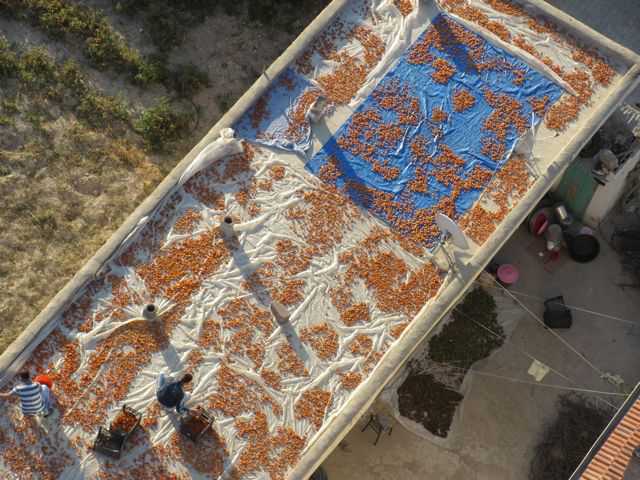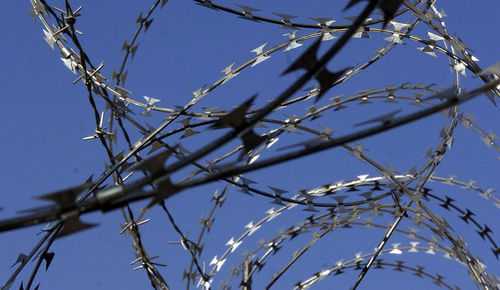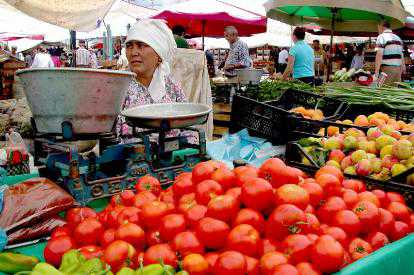Ellen Freudenheim
Freelance Author, Activist
Sustainable Farming, Organic Food: 8 Lessons for America from Anatolia, Turkey
American college graduates are drifting back to the second oldest profession in the world: farming.
Liberal arts grads, including kids with pricey degrees from Princeton and Wesleyan, are choosing to work on small, green-minded farms, reports a recent New York Times article.
Punting on entry level jobs and office drudgery, they instead are wading up to their proverbial elbows in hay and manure, engaging in physical labor, and getting a graduate seminar from Mother Nature.
The allure of an environmentally responsible, low-pesticide kind of agriculture is a logical outcome of the eco-conscious gestalt that partially defines this new generation.
The romance of raising one’s own food is just a baby step from the slow food movement, “edible schoolyards” projects, and Michelle Obama’s White House garden. It’s related to campus concern over the climate crisis, the substitution of fast food for “real food,” and the sad oxymoron of food insecurity for the obese poor. Oh, and add to that list the crummy politics and perversely unhealthful financial incentives underpinning global agribusiness.
It may seem weird to the parental units, but sustainable farming is in.
Un-Fast Food in Sukran’s Garden
In mid-September, I visited western Anatolia in Turkey where such ideas as “small farm,” “organic,” and “locally-grown” are so old hat they predate the fez. And from that trip, some words of wisdom for young American wanna-be farmers with sustainability on their minds:
Lesson #1: Plan Ahead
While tourists muse on the Roman ruins of Ephesus, heedless of where our next meal will come from, rural Turkish women are reenacting a timeless rite of survival: preparing the harvest bounty for the winter. During the still-warm autumn months, it’s not uncommon to see small groups of women working outside their homes, using canoe-length wooden paddles to stir food in huge metal vats cooking over a wood fire.
Moral of the story: If you’re not going to rely on the supermarket (or restaurants, or mom’s fridge), then you have to plan ahead.
Lesson #2: Keep It Simple
The vats in question — some three feet deep and equally as wide, almost as big as a Sultan’s tub — are filled with the same burbling red sauce as last year, and the year before. Tomato sauce is an Anatolian staple, used in a popular cold green bean dish called taze-fasulye, and a thousand and one varieties of lamb stew. Let American foodies fiddle with the recipe, worrying over the melding of the complex flavors of truffles, shallots and wine. Turkish tomato sauce is healthful, but couldn’t be more basic: stewed tomato, cooked either with or without hot green peppers, salt, some herbs.
If you’re aiming at sustainability, you might need to forsake fancy.
Lesson #3: A College Education Isn’t Enough
One of the women I met, Sukran, showed us the well-tended garden of her stone and adobe house. But first, hospitality. Over glasses of ice-cold fresh buttermilk, we take measure of each other: a shorts-wearing, college-educated New Yorker lathered in sunscreen and casually carrying an iPad, camera and iPhone, and a deeply tanned, traditional Muslim grandmother in traditional Anatolian baggy pants, floral print head shawl, and for extra coverage, a baseball cap. She has no Wi-Fi. We connected at about the only physical place where she wasn’t covered, the eyes.
We both love providing healthy meals to our families — but only one of us knows how to do so from a garden.
Bottom line: You need more than a college education to how to wring enough from an acre or two to feed the family year-round.
Lesson #4: If You Want to Eat What You Sow, Think Systems
On a quick tour of Sukran’s garden. She’s growing squash (the pulp is used for stews, flowers for salads, salted seeds for snacks); pumpkins (for pies and seed-snacks); tomatoes; robust Yukon-like potatoes; red, green and little hot green peppers, and beans. Dotted through the garden are trees: almond, apricot, pear, apple and cherry. Nuts are used in sweets and cooking. Grapes and fruits are eaten fresh in season, juiced and jellied. A beehive sits in the middle of the garden buzzing with activity. Olive trees are nearby.

Apricots are drying on the flat house rooftop (see photo), as are grapes.
Meat, milk and cheese come from goats, lamb and seven cows, are kept nearby. Huge packets of meat are stashed in one of five freezers, the only obvious nod to modernity.
The garden is as tightly laid-out as the architectural plan for a condo conversion. And, Sukran is operating with a food processing timetable that’s probably stored, like a spreadsheet, in her head.
Lesson #5: Sustainable Gardening Takes Multiple Hands
The extended family — Sukran and her husband, two sons and their wives and grandchildren — live together and participate in both food production and consumption. It may not take a village, but serious, sustainable home gardens big enough to feed a family require more than two hands.
Lesson #6: Plan a Winter Vacation in Florida to Recover from Making Hay While the Sun Shines
“You work very hard,” I say. Sukran nods, and replies,” In winter, I sleep for five months.” Clear-eyed and handsome, she looks much older than her 61 years.
Raising your own food is not a cakewalk.
Lesson #7: Don’t Underestimate How Much Skill and Knowledge Are Needed
As urbanites with a fondness for restaurant dining, it’s obvious that successful, sustainable home gardening requires skills and a broad kind of practical knowledge that we lack.
Lesson #8: “God’s Gift”
Humbled, we thank our impromptu hostess for her hospitality. “You are God’s gifts,” replies Sukran quickly, referring to the belief that strangers who show up out of the blue appear for a reason, and to whom, therefore, a gracious welcome is due.
Her words are more than pleasantries.
Faith and optimism are important ingredients in a lifestyle in which food for sustenance depends not on what time the local Whole Foods store closes, but on rain, sun and natural elements beyond one’s control.
Recipe for Change: The Sustainability ThingSukran’s garden has some retro appeal as an alternative to the American way of “doing” food, though obviously American women aren’t going to spend 24/7 in their home and garden, as she does.
Still, this Anatolian home farmer has nailed what, in Brooklyn one might call “the sustainability thing.”
- She’s living a physically active and environmentally sustainable life, raising and eating home-grown organic produce.
- Her family heats water on their roof with solar power, using government-subsidized solar panels.
- Recycling cow dung and nitrogen-rich pigeon droppings as manure, they harness a rich natural ecosystem.
- Their food security is independent of wages or agribusiness and leaves a small carbon footprint.
- The family members’ interdependence may be emotional, but it is also based in tangible economic necessity.
So here’s a recipe for change: Toss into a Sultan-sized vat the kind of traditional home farming know-how that makes Sukran’s garden bloom. Flavor with modern technology, wifi, metrics, CSAs and community gardens. Get some smart farmer kids with Princeton degrees to stir over a hot flame, fueled by growing unease over the quality of our food supply and the obesity epidemic.
With luck, they’ll cook up a green stew of 21st-century sustainable, organic gardening projects that appeal to the appetites of American suburbanites and city dwellers.
Because, for Americans, overstuffed with fast food and pesticide-rich produce as we are, an accessible bridge back to a healthier, more local food supply would, indeed, be God’s gift.





